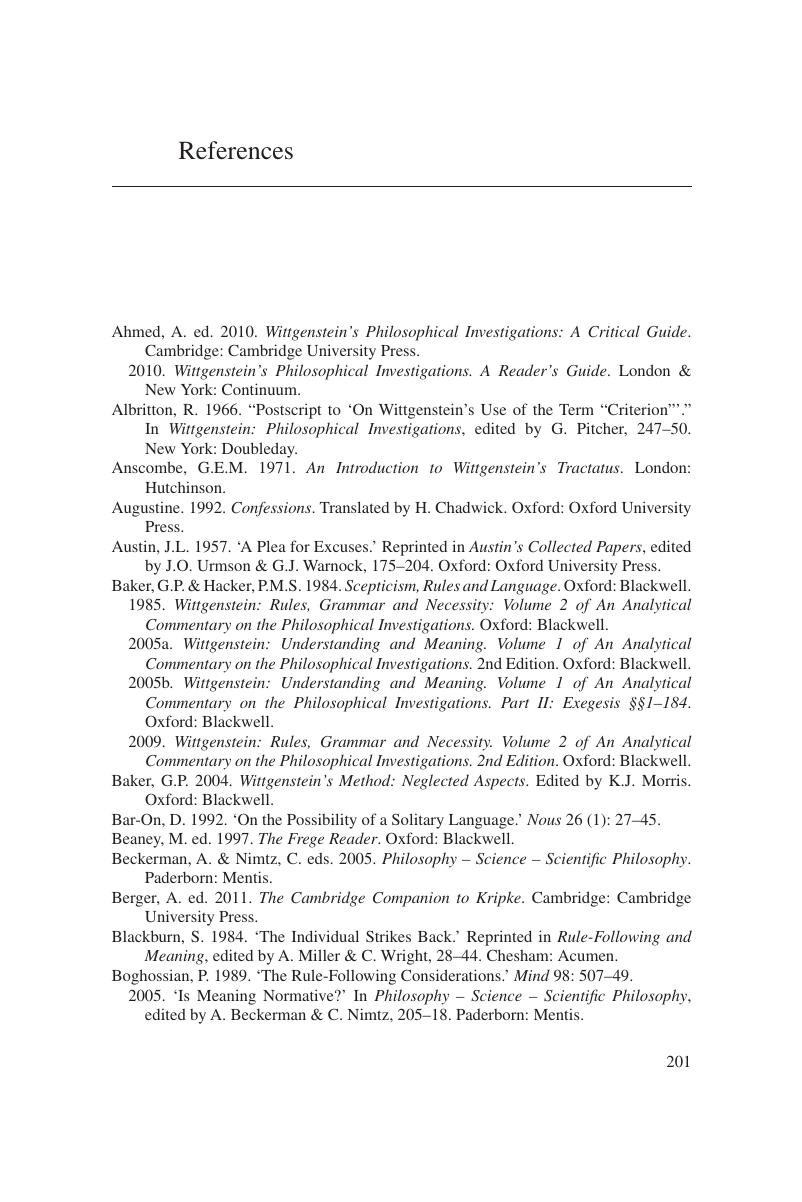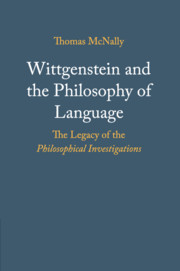Book contents
- Wittgenstein and the Philosophy of Language
- Wittgenstein and the Philosophy of Language
- Copyright page
- Dedication
- Contents
- Acknowledgements
- Abbreviations
- Introduction
- 1 Reference
- 2 The Normativity of Meaning
- 3 Scepticism About Meaning
- 4 The Social Dimension of Language
- 5 Metaphilosophy and the Philosophy of Language
- 6 Meaning and Use
- Conclusion
- References
- Index
- References
References
Published online by Cambridge University Press: 01 September 2017
- Wittgenstein and the Philosophy of Language
- Wittgenstein and the Philosophy of Language
- Copyright page
- Dedication
- Contents
- Acknowledgements
- Abbreviations
- Introduction
- 1 Reference
- 2 The Normativity of Meaning
- 3 Scepticism About Meaning
- 4 The Social Dimension of Language
- 5 Metaphilosophy and the Philosophy of Language
- 6 Meaning and Use
- Conclusion
- References
- Index
- References
Summary

- Type
- Chapter
- Information
- Wittgenstein and the Philosophy of LanguageThe Legacy of the <I>Philosophical Investigations</I>, pp. 201 - 206Publisher: Cambridge University PressPrint publication year: 2017



